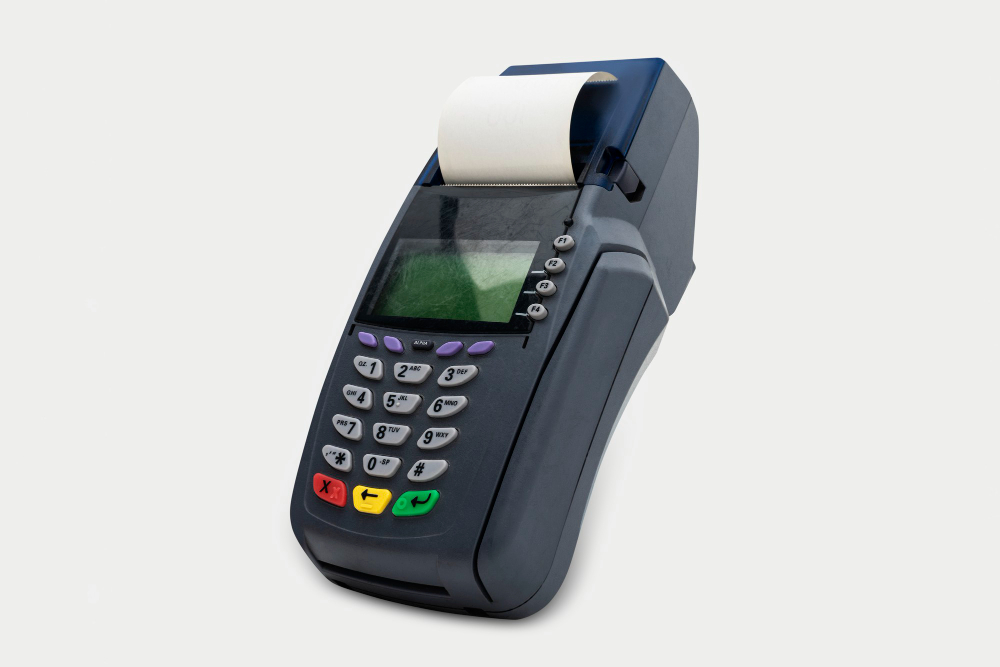Card Processor
A company that is authorized to process credit card transactions between sellers and buyers. The card processor is often the third party and will be designated by the merchant. There are two types of payment processor; front end and back end.
What does card processor mean?
A company that is authorized to process credit card transactions between sellers and buyers. The card processor is often the third party and will be designated by the merchant. There are two types of payment processor; front end and back end.
A front-end processor will have a connection to various card associations and provide clearance and authorization services to merchant bank merchants. The back-end processors are used to accept settlements from the front-end processors, and to move money from the issuing bank to the commercial bank, this process is completed in just a few seconds.
These processors perform many functions, such as evaluating whether transactions are valid and approved, using anti-fraud measures to ensure that a purchase transaction is initiated by the source it claims to be. Processors are subject to standards and regulations organized by credit card associations. These standards include rules on fraud, against charges, and identity theft.
In short, a card processor is the means by which a business owner can capture the charges of his clients through credit or debit cards of his client’s taste, obtaining the income directly to the bank account of his business, this This service is currently widely used by streamlining the payment process, a transaction that could last 5 to 10 minutes were reduced to just seconds




What is the best card reader for your small business?
If your business does not accept credit or debit cards as forms of payment, it is losing sales. Consider that most customers want to be able to pay with their cards, as they are more convenient payment methods than cash. In addition, a card reader will help your business establish credibility and trust in customers, in addition to allowing you to offer payment facilities.
It doesn’t matter if you sell online or have a conventional store: finding the best card reader can be a tedious process, especially since you need to be aware of all the fees and different services.
Fortunately, today more than ever, there are a host of services and companies that help small businesses accept card payments. You will be able to choose among all of them which is the one that best suits you
How do they work? What is the cheapest way to process credit card payments?
We have created this guide that will help you fully understand this topic so that you can choose the best solution for your payment needs. Read on to find out everything you need to know to have the best credit card terminal for your business
What is a card processor?
Accepting credit and debit card payments offers buyers a convenient alternative to paying with cash. A card transaction only takes a few seconds to be approved, but what happens behind the scenes?
If you have a point of sale system it is important that you understand how it works and all the technology behind it, in addition to that it must comply with EMV regulations (Europay, Mastecard and Visa).
First, the customer presents his card in the system, either at a physical terminal or through the online portal of your e-commerce. Cardholder and account information is transmitted securely to the company that processes the payment.
When the information reaches the bank, it sends an accepted or declined message, which reaches the seller to inform him if the payment was successful.
#Did you know
Normally, the process that allows you to make secure transactions does not take 10 seconds.
What to consider when deciding which card reader to have
Choosing the best card processor is not something you should take lightly. We know it can be stressful to find the right one, but the most important thing is that you consider the needs of your business when looking for companies that offer this service.
We share with you some of the elements that you need to consider when looking for a card reader for your company:
Application and installation fee
There may be fees when you submit your information to a card service processing company. You may also have to pay for the installation of the card reader.
These fees can vary significantly depending on the company and the number of card readers you need.
Customer service
You need to find a company that offers good customer service, especially if you have a high volume of card transactions. Depending on what your business needs, you should consider choosing a company that offers 24/7 service.
Also be sure to find a company that will respond quickly to any issues you may have. Research the type of help and customer service they have: by phone, mail, or online chat.
Fraud protection services
Fraud protection is important to keep your customer's identity safe. It also serves to prevent you from having to take responsibility for fraudulent transactions.
Make sure you evaluate companies' fraud protection policies and understand the costs you may have to pay if a cardholder disputes a transaction.
Cost for account statements
Some companies will charge you for monthly statements to cover the cost of shipping. Other companies offer the option of receiving them online, which is usually free.
Cost for early termination
There are companies that will charge you a fee if you cancel the contract early. This fee can be a few hundred dollars or several thousand, depending on the terms of the contract.
Study the contract
Many companies will require you to sign a contract, and you should read it carefully. To make sure everything is clear, ask anything you don't understand, including complex terminology.
Processing time
Don't forget to consider the processing time so that you know how long it will take for the funds to be deposited into your account. Some companies process deposits in 24 to 48 hours, while others have longer wait times.
How to choose the reader you need:
Now that we’ve gone over some of the things to consider when choosing a company for your business, here are some guidelines to help you decide if the services are right for you.
Exchange fees
When you submit your request, the company will share with you the fee they charge for processing payments.
It may be a fixed cost plus a percentage, or a fixed percentage for each transaction, which is paid by whoever processes the payment to the card issuing bank. Low risk merchant fees generally range from 2% to 3% of each transaction.
However, the rate you pay will depend on several factors, including the type of card, the type of transaction, and the size of the card. Purchases in a physical store will generally have lower interchange fees, since the card is physically present, and therefore there is less risk of fraud.
Transparent processing quotas
When evaluating your options, remember that companies should have easy-to-understand fees and costs. At all times, you should know how much money the card payment processing fees will cost and why they cost that amount.
Multiple card processing options
The best card processing companies will always offer you several options for processing cards. Whether your customers prefer to use their card chip or a contactless application, they should have the flexibility to choose their preferred method.
Requirements:
- Complete credit application of our services
- Last 6 business statements
- EIN document
- License or passport
- Void company check
Are you ready to have the best card processor?
Any small business owner today knows that accepting credit and debit cards is very important. For convenience, customers carry less money than before, preferring to use cards for most of their purchases.
For any small business, having a card processor is vital as it gives you an advantage over merchants that only accept cash. Of course, you always have to take into account the fees that a card processor includes.
